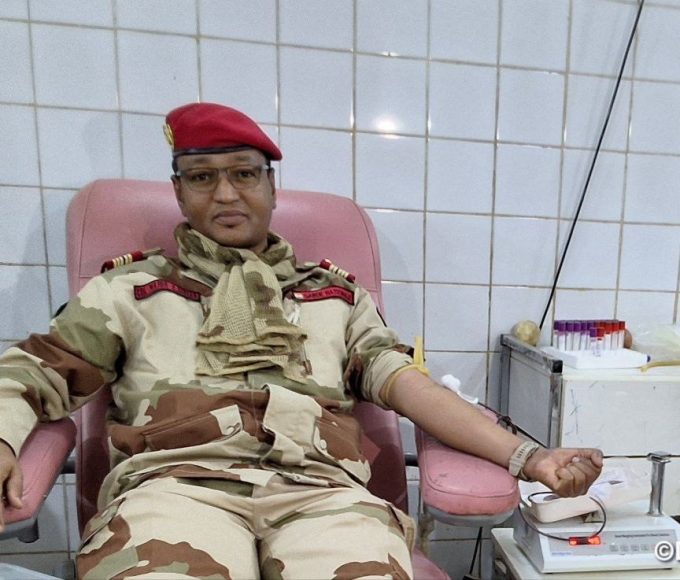

I wasn’t feeling well in October, a few months ago. Despite not feeling well, I had to ‘man up’ and continue with the already planned activities. Even though I wasn’t eating well, I made an effort to keep myself physically healthy. I knew food was necessary, so I tried—even though every meal felt like a chore rather than nourishment.
I dozed off on the sofa after everyone had gone to bed that night. When I woke up, it was about midnight; it took nearly 15 minutes to sit up. My body felt borrowed—weak, drained, unresponsive. I managed to stand, walk to the window, and shut it. It was a simple task, but it felt like climbing a mountain.
Then I took my plate to the kitchen. The next thing I knew, I was waking up on the floor while returning. One moment, I was standing—the next, I was somewhere else entirely, staring into space, struggling to comprehend what had just happened. It took a few moments before I pieced it together—I had fainted. I laughed, even in pain, because I had never experienced such a thing. Oh well. I eventually made it to bed after several attempts at getting up and moving.
I was unable to do anything by myself by morning. I needed assistance getting out of bed, walking, and getting to the hospital. My temperature had risen to 39.5 degrees Celsius. To stabilise me, the doctor hurriedly gave me IV fluids with the treatment for malaria included. I was able to walk once more in a few hours. Once more, I felt hungry and ate. When my body got the attention it required, it responded practically immediately.
But here’s the unsettling reality: mental illness creeps in, usually without any dramatic announcement, about the same way the physical illness does. It often slowly chips away at the embers of the mind unnoticed until it reaches a tipping point.
A person struggling with mental health might not immediately recognise their decline. They may feel off, unmotivated, or withdrawn, but they push through, telling themselves it’s just stress. Like how I tried to keep up appearances despite my body’s warning signs, they force themselves to work, socialise, and function.
READ MORE: The Power of Community in Changing Mental Health Narratives
Over time, exhaustion sets in—mentally, emotionally, and psychologically. Small tasks feel overwhelming. Conversations become draining. Sleep is either too much or never enough. Relationships begin to feel like obligations. There is no energy left to give.
The failure usually happens with extra warnings—a full-blown panic attack, an episode of deep depression, a sudden breakdown at work, or even suicidal thoughts. Just as my body eventually gave out, the mind can do the same when neglected for too long.
Had I listened to my body earlier—the fatigue, the loss of appetite, the weakness—I might have sought medical help before I fainted. But like many people do with their mental health, I brushed it aside.
This is why mental health issues often go unchecked. The signs are there, but we dismiss them. “I’m just tired.” “It’s just stress.” “I’ll be fine.” We normalise burnout, anxiety, and emotional numbness as part of life. And because mental breakdowns don’t always happen in one dramatic moment—sometimes they come in waves, in slow motion—we don’t realise how unwell we are until we crash.
When I was taken to the hospital, my body responded almost immediately to treatment. The fever dropped. My energy returned. I could function again.
Mental health works the same way. Therapy, rest, emotional support, medication (if needed), and self-care are the psychological equivalents of IV fluids and fever medication. They stabilise the system. They bring us back. They allow us to heal.
About The Author
%s Comment
Leave a Reply Cancel reply
Related Articles
Trump’s Greenland Threat Forces Europe to Taste the Logic of Western Colonial Power
It rarely begins with soldiers. More often, it begins with a sentence,...
ByWest Africa WeeklyJanuary 21, 2026MLMs Like Neolife Face Rising Criticism in Nigeria Over Financial Losses, Psychological Stress, and ‘Brainwashing’ of Young People
Multi-level marketing (MLM) companies operating in Nigeria, including well-known names such as...
ByWest Africa WeeklyDecember 16, 2025Surviving Poverty Through Pollution: A Day in the Life of Adamawa Bola Boys
Before leaving Lagos, I was sure that I had left behind memories like...
ByBankole Taiwo JamesNovember 20, 2025Niger: National Guard Organizes Blood Donation Drive to Support Health Services
The National Guard of Niger (GNN) launched a major blood donation campaign...
ByWest Africa WeeklyNovember 13, 2025












This is so helpful ✨